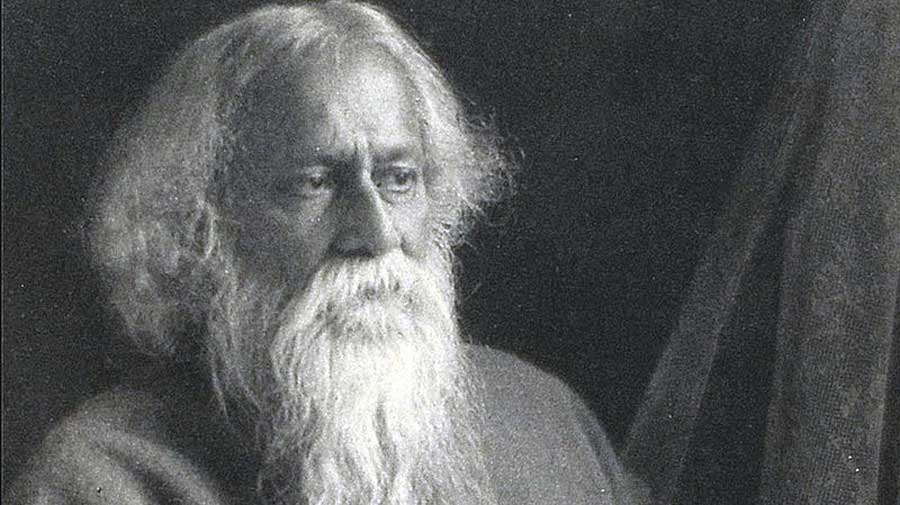In the second part of his interview with Subhoranjan Dasgupta, professor of human science, physicist Bikash Sinha continues to dissect the contention in a calendar by the Centre of Excellence for Indian Knowledge Systems, IIT Kharagpur, that western knowledge is “reductionist”, “derivative”, “mechanistic” and “destructive”, with its best parts borrowed from ancient Indian (Hindu) knowledge.
Q: Could you give an example of this parallel flow of thought that encompassed both, the eastern and western?
Sinha: Of course. Take the instance of “nihilism”. In our eastern thought, nihilism attained a preeminent position in Buddhist philosophy, especially in the relentless argumentation of Nagarjuna. He debated till the very end and terminated in nasti or shunyota.
In western thought, the pressure of nihilism was felt by (Friedrich) Nietzsche, (Albert) Camus, Andre Breton. Let us examine these two streams side by side with an open and receptive mind. Why should we say that Nagarjuna influenced Nietzsche or, worse, Nietzsche “derived” his thought from Nagarjuna?
There is yet another big miss in the calendar. It has paid scant attention to the glorious Upanishads, to the scintillating Buddhist school of thought and the Indian materialist or Lokayata philosophy.
Another striking example of this parallel progress – in this case debate – is the marvellous dialogue that took place between (Albert) Einstein and Rabindranath (Tagore). Both expounded their thought systems in a masterly manner and parted as good friends. I do not adhere to the estimate expressed in this calendar that Einstein, in response to Tagore’s cogitation, accepted the Indian view of consciousness as the best medium to interpret reality.
Indeed, I very much object to the presence and inclusion of Rabindranath in this calendar brandishing Hindu superiority. Rabindranath stood solidly against (the theory of) derivation and professed a free, fruitful and equal exchange as well as interaction.
Q: Rabindranath was also the author of the brilliant scientific text Biswaparichay. Prof. Sinha, you are a renowned professor of physics. Hence, I have a special question for you. “Mechanistic” Newton has been mentioned more than once, disparagingly, in this calendar. What we are today, where we stand, is based on Newtonian and post-Newtonian physics. How do you react to this denunciation?
Sinha: I shall briefly recall the past to answer this question. When the western world was immersed in darkness, India attained the highest levels of achievement in philosophy, trigonometry and algebra. But then – we have to admit – the wheel changed radically. India lost its links with the other intellectual streams of the world and turned moribund as far as the progress of wisdom was concerned.
So, when Newton arrived, the role was entirely reversed. We should acknowledge this reversal and not regard the discovery of the path-breaking law of gravity as either “mechanistic” or “reductionist”. It was a cardinal discovery. At the same time, we should not forget that Newton spent half his time immersed in theology. A theologist, by definition, cannot be “mechanistic”.
Q: The famous Nobel laureate physicist, Roger Penrose, is your personal friend. His picture appears on the October page of the calendar with the comment, “The Gnostic Foundations of Human (Node) and Universal Consciousness (Network) is accepted by Nobel laureate Roger Penrose and his team”. Your comment?
Sinha: Roger Penrose is known for his unique research on cosmology, a new form of cosmology called cyclic cosmology. He has done signal work on human consciousness and what he has achieved cannot be expressed in pseudo-scientific terms such as “Gnostic Foundation of Human (Node) and Universal Consciousness (Network)”.
We dare not erase the crucial difference in this context. Namely, Penrose explored consciousness from a totally scientific angle, from the perspective of neurons and quantum mechanics, while Indian thought explored it from the perspective of non-physiological and non-materialist philosophy, i.e., it stressed the mystical-spiritual aspect. Thetwo are not the same. Both he (Penrose) and I would regard his inclusion in this calendar as embarrassing, unwarranted and, above all, an aberration.
Q: Lest readers think we are keen to denigrate Indian knowledge systems, shouldn’t we specifically offer genuine examples of western praise for eastern thought and creativity?
Sinha: Certainly. The first example that comes to mind is that of the great German poet, (Johann Wolfgang von) Goethe. He praised Kalidasa’s Shakuntala effusively. He said that “fruit and flower” commingle in this incomparable literary creation.
The second example is that of the German thinker Arthur Schopenhauer who said: “The Upanishads have given me utmost consolation during my lifetime and they will grant me lasting peace when I die.”
And the last example is that of the illustrious Indologist, Friedrich Max Mueller, who translated the Rig Veda from Vedic Sanskrit into English. Recalling the majesty and grandeur of ancient India, he had said: “I point towards India.”
But all this does not lead to the conclusion that western knowledge systems are “reductionist”, “derivative” and “mechanistic”. If, for argument’s sake, we accept this to be so, we confront a fundamental fallacy or contradiction. Namely, the very source or origin of the western knowledge system — which is the Indian knowledge system, as claimed by the CEIKS — is also necessarily “reductionist” and “derivative”. The faulty original has led to the faulty imitation. Will the proponents of Indian knowledge systems accept this unpleasant verdict?
I have been as objective and dispassionate as possible while participating in this dialogue. But, I fear, there could be another reaction as well, acerbic and indignant. I wonder how the great scientist and one of our pathfinders, Meghnad Saha, would have reacted to this calendar. Perhaps he would have used the same words that he had employed to ridicule those who tried to trace everything good and bad to the Vedas — “It is not only nonsense, but dangerous nonsense.”
(Concluded)











